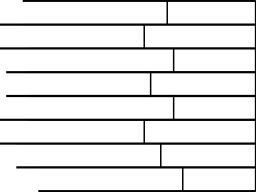Hi All,
I'm fitting a new kitchen, and was going to fit an oak worktop. The IKEA ones seem like good value, and match my units (also from IKEA), however I need a run approx 2700mm long, and their longest length is 2470mm.
I'll have an offcut from another pice which I can use to 'fill the gap'. Apart from appearance, is there a reason I shouldn't join the worktop?
I can get a custom worktop, but it will cost quite a lot more (£500ish total instead of £220 total)
Thanks for your advise,
Leon
I'm fitting a new kitchen, and was going to fit an oak worktop. The IKEA ones seem like good value, and match my units (also from IKEA), however I need a run approx 2700mm long, and their longest length is 2470mm.
I'll have an offcut from another pice which I can use to 'fill the gap'. Apart from appearance, is there a reason I shouldn't join the worktop?
I can get a custom worktop, but it will cost quite a lot more (£500ish total instead of £220 total)
Thanks for your advise,
Leon


